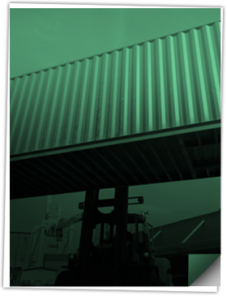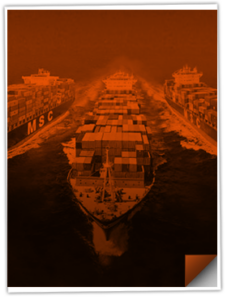President Trump Issues Presidential Proclamations with Additional Import Steel and Aluminum Tariffs Effective March 23, 2018 – New Country Exceptions AnnouncedPresident Trump Issues Presidential Proclamations with Additional Import Steel and Aluminum Tariffs Effective March 23
- March 9, 2018
Under Presidential Proclamations issued on March 8, 2018:
“Steel article” imports specified in the Annex shall be subject to an additional 25 percent ad valorem rate of duty with respect to goods entered, or withdrawn from warehouse for consumption, on or after 12:01 a.m. eastern daylight time on March 23, 2018. This rate of duty, which is in addition to any other duties, fees, exactions, and charges applicable to such imported steel articles, shall apply to imports of steel articles from all countries except Canada, Mexico, Australia, Argentina, South Korea, Brazil and member countries of the European Union (Austria, Belgium, Bulgaria, Croatia, Cyprus, Czech Republic, Denmark, Estonia, Finland, France, Germany, Greece, Hungary, Ireland, Italy, Latvia, Lithuania, Luxembourg, Malta, Netherlands, Poland, Portugal, Romania, Slovakia, Slovenia, Spain, Sweden and the United Kingdom).
“Steel articles” are defined at the Harmonized Tariff Schedule (HTS) 6‑digit level as: 7206.10 through 7216.50 (including ingots, bars, rods and angles), 7216.99 through 7301.10 (including bars, rods, wire, ingots, and sheet piling), 7302.10 (rails), 7302.40 through 7302.90 (including plates and sleepers), and 7304.10 through 7306.90 (including tubes, pipes and hollow profiles), including any subsequent revisions to these HTS classifications.
“Aluminum articles” specified in the Annex shall be subject to an additional 10 percent ad valorem rate of duty with respect to goods entered, or withdrawn from warehouse for consumption, on or after 12:01 a.m. eastern daylight time on March 23, 2018. This rate of duty, which is in addition to any other duties, fees, exactions, and charges applicable to such imported aluminum articles, shall apply to imports of aluminum articles from all countries except Canada, Mexico, Australia, Argentina, South Korea, Brazil and member countries of the European Union (Austria, Belgium, Bulgaria, Croatia, Cyprus, Czech Republic, Denmark, Estonia, Finland, France, Germany, Greece, Hungary, Ireland, Italy, Latvia, Lithuania, Luxembourg, Malta, Netherlands, Poland, Portugal, Romania, Slovakia, Slovenia, Spain, Sweden and the United Kingdom).
“Aluminum articles” are defined as (a) unwrought aluminum (HTS 7601); (b) aluminum bars, rods, and profiles (HTS 7604); (c) aluminum wire (HTS 7605); (d) aluminum plate, sheet, strip and foil (flat rolled products) (HTS 7606 and 7607); (e) aluminum tubes and pipes and tube and pipe fittings (HTS 7608 and 7609); and (f) aluminum castings and forgings (HTS 7616.99.5160 and 7616.99.51.70).
Countries Exempt from these tariffs (for now): Canada, Mexico, Australia, Argentina, South Korea, Brazil and member countries of the European Union (Austria, Belgium, Bulgaria, Croatia, Cyprus, Czech Republic, Denmark, Estonia, Finland, France, Germany, Greece, Hungary, Ireland, Italy, Latvia, Lithuania, Luxembourg, Malta, Netherlands, Poland, Portugal, Romania, Slovakia, Slovenia, Spain, Sweden and the United Kingdom). If any additional countries are added, Shapiro will update the list.
As far as U.S. allies are concerned, it is wait and see based on President Trump’s comments at the signing of the proclamations.
President Trump announced at the press conference, “Some of the countries that we are dealing with are great partners, great military allies and we’re going to be looking at that very strongly. The tariffs don’t go effective for at least another 15 days and we’re going to see who’s treating us fairly, who’s not treating us fairly. Part of that’s going to be military. Who’s paying the bills, who’s not paying the bills. We subsidize many rich countries with our military. They pay not one hundred cents on the dollar and in some cases not fifty cents on the dollar and they’re massively wealthy countries. So, we have to stop that and that will enter into the equation also.”
Note: There is a provision for exclusions to the additional tariffs. Relief shall be provided for a steel or aluminum article only after a request for exclusion is made by a directly affected party located in the United States. If the Secretary determines that a particular article should be excluded, the Secretary shall, upon publishing a notice of such determination in the Federal Register, notify Customs and Border Protection (CBP) of the Department of Homeland Security concerning such article so that it will be excluded from the additional tariffs described in the proclamations. The Secretary shall issue procedures for requests for exclusion by March 18, 2018.
The next 15 days will bring forth additional details on countries affected and exclusion requests. Stay tuned!
Background: On February 16, 2018, Department of Commerce Secretary Wilbur Ross released reports on the U.S. Department of Commerce’s investigations into the impact on our national security from imports of steel mill products and from imports of wrought and unwrought aluminum.
These investigations were carried out under Section 232 of the Trade Expansion Act of 1962, as amended. The purpose of a Section 232 investigation is to determine the effect of imports on the national security. Investigations can be initiated based on an application from an interested party, a request from the head of any department or agency, or may be self-initiated by the Secretary of Commerce. Commerce has 270 days to present the finding and recommendations to the President. If the Secretary finds that imports threaten to impair the national security, the President has 90 days to determine whether he agrees with the Secretary’s findings, and to determine whether to use his statutory authority to “adjust imports.”
Initial recommendations from the Steel Report:
Secretary Ross has recommended to the President that he consider the following alternative remedies to address the problem of steel imports:
- A global tariff of at least 24% on all steel imports from all countries, or
- A tariff of at least 53% on all steel imports from 12 countries (Brazil, China, Costa Rica, Egypt, India, Malaysia, Republic of Korea, Russia, South Africa, Thailand, Turkey and Vietnam) with a quota by product on steel imports from all other countries equal to 100% of their 2017 exports to the United States, or
- A quota on all steel products from all countries equal to 63% of each country’s 2017 exports to the United States.
Initial recommendations from the Aluminum Report:
Secretary Ross has recommended to President Trump three alternative remedies for dealing with the excessive imports of aluminum. These would cover both aluminum ingots and a wide variety of aluminum products.
- A tariff of at least 7.7% on all aluminum exports from all countries, or
- A tariff of 23.6% on all products from China, Hong Kong, Russia, Venezuela and Vietnam. All the other countries would be subject to quotas equal to 100% of their 2017 exports to the United States, or
- A quota on all imports from all countries equal to a maximum of 86.7% of their 2017 exports to the United States.



